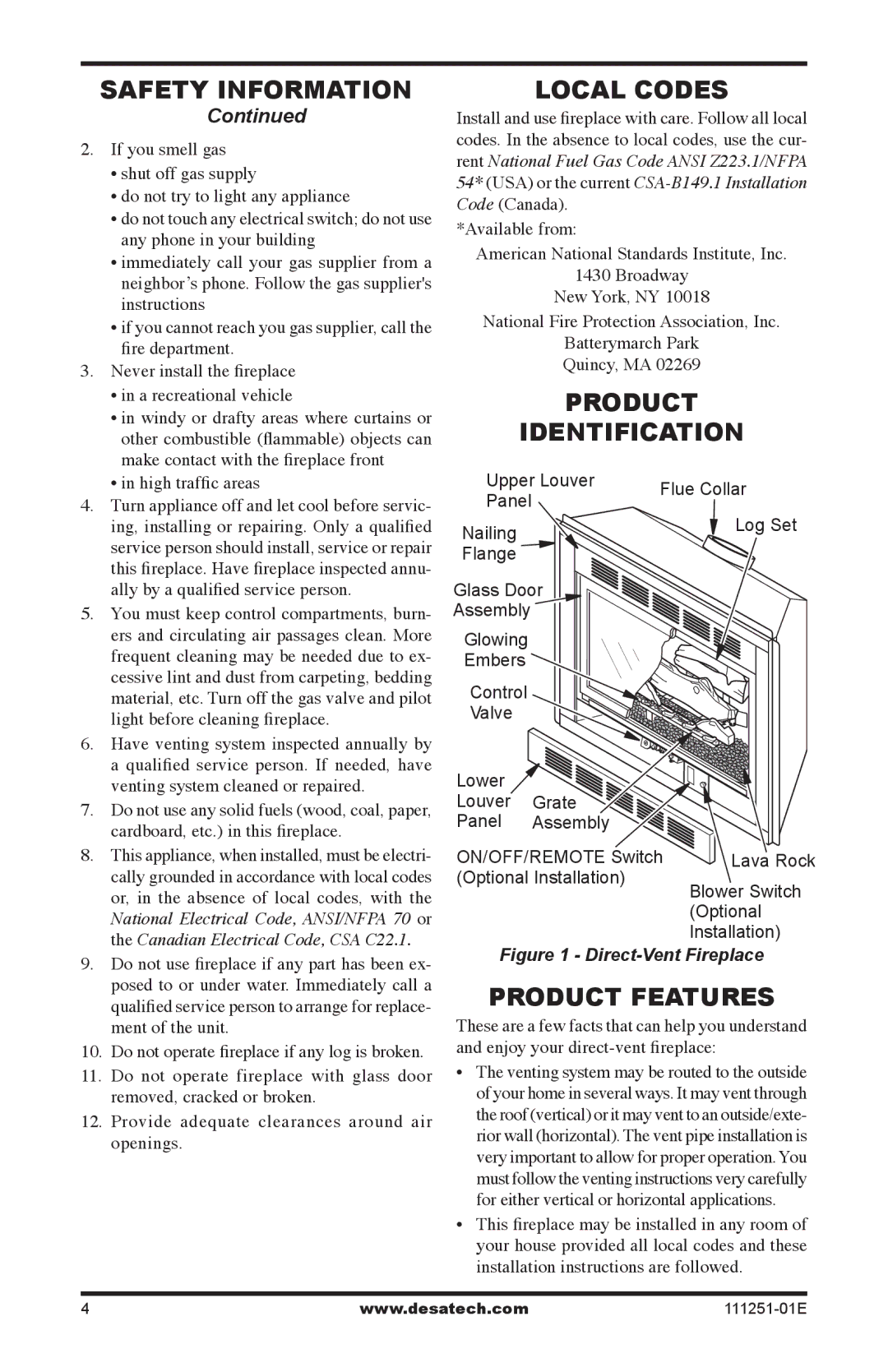
Safety information
Continued
2.If you smell gas
•shut off gas supply
•do not try to light any appliance
•do not touch any electrical switch; do not use any phone in your building
•immediately call your gas supplier from a neighbor’s phone. Follow the gas supplier's instructions
•if you cannot reach you gas supplier, call the fire department.
3.Never install the fireplace
•in a recreational vehicle
•in windy or drafty areas where curtains or other combustible (flammable) objects can make contact with the fireplace front
•in high traffic areas
4.Turn appliance off and let cool before servic- ing, installing or repairing. Only a qualified service person should install, service or repair this fireplace. Have fireplace inspected annu- ally by a qualified service person.
5.You must keep control compartments, burn- ers and circulating air passages clean. More frequent cleaning may be needed due to ex- cessive lint and dust from carpeting, bedding material, etc. Turn off the gas valve and pilot light before cleaning fireplace.
6.Have venting system inspected annually by a qualified service person. If needed, have venting system cleaned or repaired.
7.Do not use any solid fuels (wood, coal, paper, cardboard, etc.) in this fireplace.
8.This appliance, when installed, must be electri- cally grounded in accordance with local codes or, in the absence of local codes, with the
National Electrical Code, ANSI/NFPA 70 or the Canadian Electrical Code, CSA C22.1.
9.Do not use fireplace if any part has been ex- posed to or under water. Immediately call a qualified service person to arrange for replace- ment of the unit.
10.Do not operate fireplace if any log is broken.
11.Do not operate fireplace with glass door removed, cracked or broken.
12.Provide adequate clearances around air openings.
Local Codes
Install and use fireplace with care. Follow all local codes. In the absence to local codes, use the cur- rent National Fuel Gas Code ANSI Z223.1/NFPA 54* (USA) or the current
*Available from:
American National Standards Institute, Inc.
1430 Broadway
New York, NY 10018
National Fire Protection Association, Inc.
Batterymarch Park
Quincy, MA 02269
Product
Identification
Upper Louver | Flue Collar | |
Panel | ||
| ||
Nailing | Log Set | |
| ||
Flange |
|
Glass Door
Assembly ![]()
Glowing
Embers
Control
Valve
Lower |
|
|
Louver | Grate |
|
Panel | Assembly |
|
ON/OFF/REMOTE Switch | Lava Rock | |
(Optional Installation) | Blower Switch | |
|
| |
(Optional
Installation)
Figure 1 - Direct-Vent Fireplace
Product Features
These are a few facts that can help you understand and enjoy your
•The venting system may be routed to the outside of your home in several ways. It may vent through the roof (vertical) or it may vent to an outside/exte- rior wall (horizontal). The vent pipe installation is very important to allow for proper operation. You must follow the venting instructions very carefully for either vertical or horizontal applications.
•This fireplace may be installed in any room of your house provided all local codes and these installation instructions are followed.
www.desatech.com111251-01E
